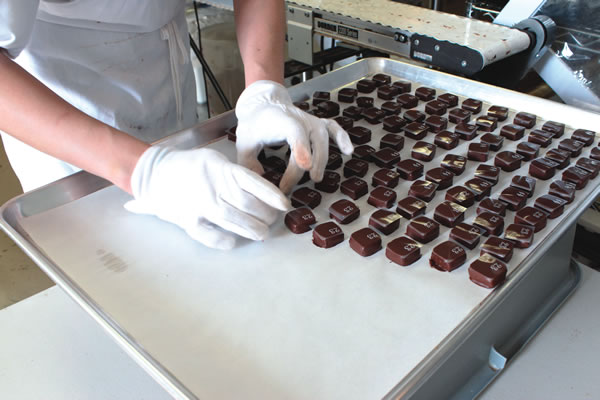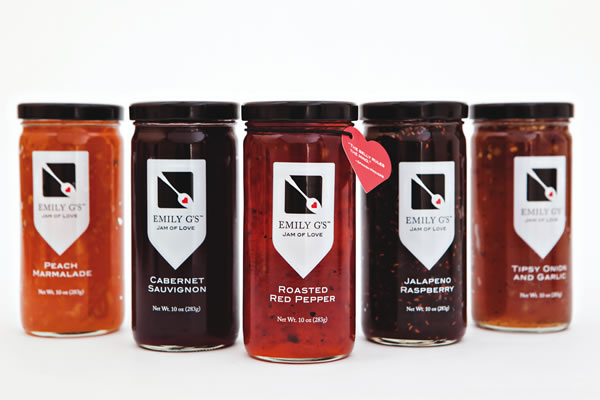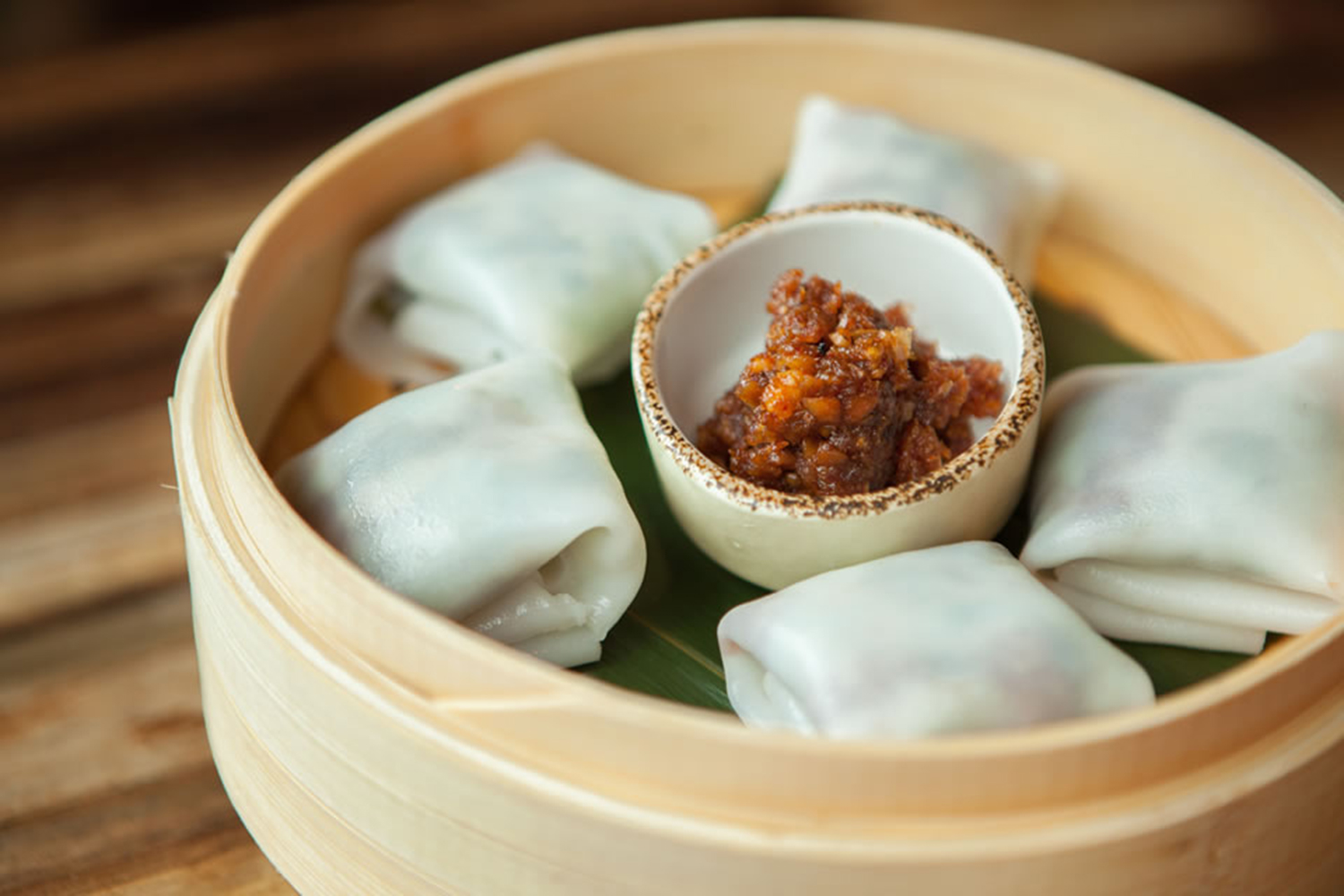Atlanta’s small batch foodie craze meets the discerning palates of epicurean travelers and the city’s natives.- By Bret Love
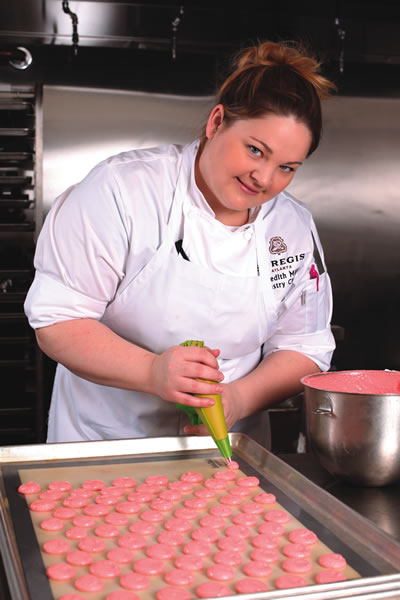 Back in our grandparents’ and great-grandparents’ day—before technological advancements in manufacturing, shipping, refrigeration and preservation helped food companies go global—farm-to-table cuisine was not a trend, but the norm. Terms like “organic” and “locavore” were meaningless, because all food back then was organic and local.
Back in our grandparents’ and great-grandparents’ day—before technological advancements in manufacturing, shipping, refrigeration and preservation helped food companies go global—farm-to-table cuisine was not a trend, but the norm. Terms like “organic” and “locavore” were meaningless, because all food back then was organic and local.
Growing up in the South, many of us helped our grandparents pick fresh fruits and vegetables from the garden, cooking some of them fresh that day and preserving the rest in Mason jars to sustain us through the winter. Now, as more and more people learn about the dangers of genetically modified produce and the benefits of organically grown produce, there seems to be a resurgent interest in home-style, locally sourced food, which is often produced in small batches to ensure maximum quality control.
Meredith Miller, pastry chef at The St. Regis Atlanta, says cooking in small batches also makes the food taste better.
“With small batches, the flavor profiles are a bit more developed,” she says. “The product is a higher quality because you can spend time getting the details of the flavors and the portions just right. You can also individualize them to meet your specific needs and cater to any special requests.”
Miller knows that of which she speaks: As pastry chef, she oversees their Macarons-à-Porter program, which offers scrumptious made-to-order macarons in seasonal flavors. Customers can order the cookies by the dozen with a 24-hour notice and package the cookies in distinctive bronze and white boxes for gift giving or simply sharing with friends and family.
Like the small batch concept, macarons have been around for centuries, with some debate over whether they were originally created by Catherine de Medici’s Italian pastry chefs in the early 1500s or, as the influential culinary tome “Larousse Gastronomique” claims, by a French convent in the late 1700s.
Regardless of its origins, the sweet, meringue-based confection (which is not to be confused with macaroons, which are typically made with coconut) continues to be an upscale foodie favorite. Made from egg whites, sugar, ground almonds and food coloring, and then filled with ganache, buttercream or jam, the dessert comes in an astounding array of flavors. For the 2012 holiday season, the menu will include Champagne, apricot, gingerbread, winterberry and salted caramel.
Asked why people still crave this simple snack that was invented 200 to 500 years ago, Miller points to the macaron’s lightness and diversity. “It’s a light, sweet cookie to finish a meal, or a little treat you’d have in the afternoon,” she says. “It isn’t a large, American-style cookie. It’s not heavy. When you’re making a smaller batch, the cookies are always perfect in size, and you can easily change the colors and flavors. I think what makes our macarons special is the fact that we use such high quality products.”
Miller admits that her love of small batch products extends beyond her own kitchen, citing artesian ice cream company Honeysuckle among her favorites. But they’re just one of many Atlanta-based culinary companies whose focus on small batch preparation have made them increasingly popular with the city’s avid foodies. Here, Bespoke Magazine shares just a few of the noteworthy places that epicurean travelers will fall in love with.
Cacao Atlanta Chocolate Co.
 Cacao Atlanta Chocolate Co. (which has locations in Buckhead, Inman Park and Virginia Highlands as well as an online store) comes across like Atlanta’s version of the quaint European shop from the Johnny Depp-Juliette Binoche film “Chocolat.” Designed with Old World allure by founder Kristen Hard, the white marble countertops, French bistro-style seating and eye-popping displays give the stores an air of elegance.
Cacao Atlanta Chocolate Co. (which has locations in Buckhead, Inman Park and Virginia Highlands as well as an online store) comes across like Atlanta’s version of the quaint European shop from the Johnny Depp-Juliette Binoche film “Chocolat.” Designed with Old World allure by founder Kristen Hard, the white marble countertops, French bistro-style seating and eye-popping displays give the stores an air of elegance.
Hard’s love affair with chocolate began long before she settled in Atlanta, when she was working as a chef on a yacht and collecting different types of cocoa at various Caribbean ports. As Hard recalls, the process of grinding it into powder, putting it through a sieve and rolling it with a rolling pin to make the cocoa finer turned her interest in homemade chocolate into an obsession.
“I wanted to know every detail about it,” she says. “The history, the nutrition, the mystical stories, and how it reached the New World. I decided against law school, moved to and from Italy, declined a job running a chocolate company in Connecticut, and then started my own company.”
Now, she approaches the art of making chocolate as a true craftsman, sourcing her own cocoa beans; working hands-on with farmers in the Dominican Republic, Venezuela, Peru and Georgia (where she sources fruit, honey, dairy and nuts from local farms); and working to elevate the cacao farming practice.
Her small batch, bean-to-bar approach has made Hard one of the country’s most critically acclaimed chefs: In 2012, Cacao was named the Best Chocolate Shop in the World by Travel + Leisure, Best Chocolate in America by Bon Appétit and Best Hot Chocolate in the U.S. by FOOD & WINE.
Whether you try her famous “love bars,” her chocolate truffles, her Aztec-style hot chocolate or confectionary products such as muscadine cordials and cocoa nib peanut brittle, walking into Cacao feels a little like entering a Willy Wonka world made exclusively for adults. It’s a must-stop for any chocolate lover. (cacaoatlanta.com)
Emily G’s
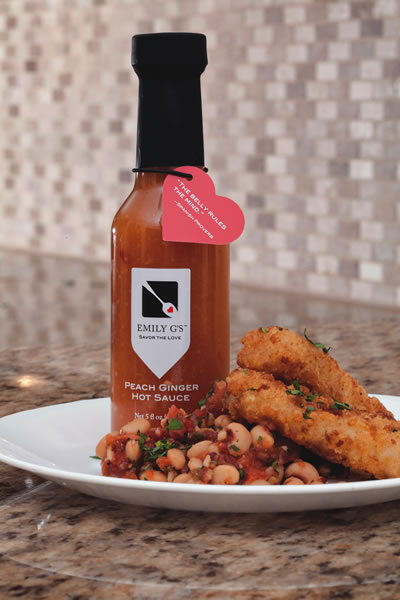 Proof positive that improvisation and inspiration are often as important as ambition, Emily G’s grew out of complete happenstance.
Proof positive that improvisation and inspiration are often as important as ambition, Emily G’s grew out of complete happenstance.
In 2008, Emily Myers and neighbor Gina Bodell took their kids to pick berries at the Athens-area Washington Farms. When they came back with more fruit than they could eat, the duo cranked out a big batch of strawberry jam, which they shared with friends and family. Demand for supply eventually led them to launch a full-time business, and these days you can find Emily G’s jams online and in farmers markets and other retail locations across the country.
Myers, who now runs the company alone, studied at the Midwest Culinary Institute in Cincinnati and continues to teach Cooking 101 classes at Atlanta’s Cook’s Warehouse. When asked how a former classically trained chef winds up as an award-winning jam specialist, she acknowledges that her hobby evolved into something of an obsession.
“I sometimes dream about jams,” she says. “Or I get an idea in my head, and I can’t think straight until I make it. When I can’t find something in a store made right, such as relish, or I want to bring something unique, such as berbere, I feel like someone should put a decent one on the market.”
As a result, Emily G’s has grown from four flavors of jam in 2008 to 18 jams (including popular favorites such as blackberry vanilla, jalapeno raspberry and peach marmalade), sauces and relish. Myers’ products have been praised in magazines such as Bon Appétit and Martha Stewart Weddings, and her three pepper relish won a Silver Finalist award at the 2012 Fancy Food Show.
“I pride myself on the quality of our ingredients, superior flavors and beautiful packaging,” Myers says. “We believe that what we eat should be prepared simply and naturally, with the best ingredients available. I do all of this for my family, and because I love food. I’m passionate about it.” (emilygs.com)
Hope’s Gardens
Another accidental success story, the seeds of Hope’s Gardens were planted in the spring of 2007, when Dave and Leslie Lennox began selling Leslie’s handmade greeting cards at Atlanta’s Peachtree Road Farmers Market. With interest in sustainable farm-to-table cuisine just starting to take off in the area, the couple decided to bring vegetables from their garden to sell, and that summer they began selling homemade pesto. Thus, a booming business was born.
Named after the couple’s daughter, Hope, the Lennox family built their grassroots following the old fashioned way. They spend just about every weekend plying their farm-fresh wares at farmers markets in the area, from Brookhaven and Grant Park to Sandy Springs and Marietta.
From their original basil pesto, the line gradually expanded to include jalapeno pesto, sun-dried tomato pesto and vegan-friendly mint pesto. Eventually local restaurants such as Cafe Jonah and Murphy’s came calling, and these days you can find Hope’s Gardens’ products in eight Whole Foods Markets across the city.
“It’s a true family business, making the best of what they love to do and are good at,” says Jennifer Maley of online retailer Local Market South, a longtime vendor of the line. “It’s really fresh, and it comes in these beautiful, old jars. As far as the pesto goes, I think it’s mother’s little helper in the kitchen. You can do anything with pesto: You can put it in eggs, pasta, pizza, meats and grill with it. It’s the freshest pesto you can buy, short of actually making it yourself.” (hopesgardens.com)
With so much discussion about the benefits of grass-fed, free-range, antibiotic-free meats in recent years, it’s been refreshing to see a company such as Pine Street Market growing exponentially.
Opened by Culinary Institute of America grad Rusty Bowers in 2009, the Avondale Estates charcuterie specialists get their meat from Gum Creek Farms in Roopville, Ga. There, cows, lamb and Berkshire pigs are raised antibiotic-free in pastures without herbicides or insecticides, with grazing spots rotated to ensure healthy foraging.
Once the animals arrive at the shop, Bowers and his team begin a complex process that involves separating large pieces such as the coppa (shoulder) and removing small bits of meat and fat, which are later recombined based on the kind of salami or sausage they’re making. They add salt and seasonings to the meat, then reintroduce fat as it’s ground. Liquids such as wine and starter culture are added, and then the meat is put into a fermenting room, where the humid environment kick-starts the fermentation process. After a few days it’s moved to the aging room, and six weeks to 18 months later it’s ready to sell.
If that sounds like a lot of work, it’s because it is. But what results is some of the most acclaimed cured meat products in the entire Southeast. From handmade salamis, sausages and award-winning coppa to 18-month-old prosciutto, applewood smoked bacon and—by far Bowers’ favorite—the smoked, aged ham known as speck, Pine Street Market’s products have made them a favorite of many of Atlanta’s most respected restaurants, including Farm Burger, The Hil at Serenbe, Leon’s Full Service, Little Alley Steak and the Wahoo! Grill. (pinestreetmarket.com)
In the end, the products sold by these and other Atlanta-area, small-batch companies might come with a slightly higher price tag than the generic brands you find on your local grocer’s shelves. But, as Miller suggested, the quality ingredients and greater attention to details ensures that you wind up getting a better-tasting product. And, at the same time, you help support independent entrepreneurs who’ve put their hearts and souls into the city’s burgeoning locavore foodie movement.


